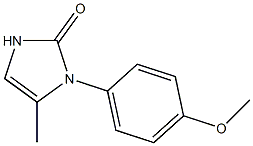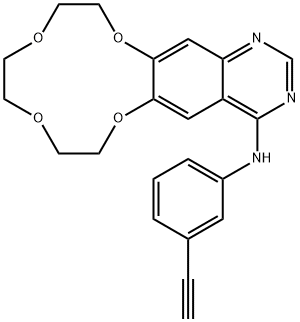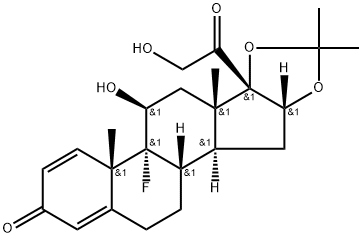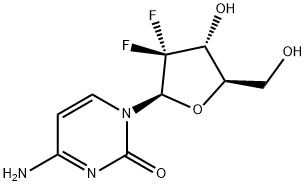Bevacizumab
Synonym(s):Monoclonal IgG1
- CAS NO.:216974-75-3
- Empirical Formula: C6638H10160N1720O2108S44
- Molecular Weight: 0
- MDL number: MFCD08272721
- EINECS: 200-160-3
- Update Date: 2024-11-16 15:32:52
What is Bevacizumab?
Description
Bevacizumab, a humanized IgG1 monoclonal antibody against vascular endothelial growth factor (VEGF), inhibits tumor angiogenesis and delays disease progression. It was launched in the US as an intravenous infusion for the treatment of metastatic colorectal cancer in combination with fluorouracil-based chemotherapy. Bevacizumab was developed by engineering the VEGF binding residues of the murine neutralizing antibody A.4.6.1 into the framework of the consensus human IgG1. Its amino acid sequence is approximately 93% human IgG and 7% murine antibody and is produced in a CHO cell expression system. Bevacizumab binds VEGF with high affinity (Kd=0.5 nM) and prevents its interaction with tyrosine kinase receptors VEGFR1 and VEGFR2 on the surface of endothelial cells, thereby inhibiting cell proliferation and microvascular growth. In mouse models, administration of bevacizumab blocked the growth of human tumor xenografts and reduced the size and number of metastases. The recommended dosage of bevacizumab is 5 mg/kg administered once every 2 weeks as an intravenous infusion until disease progression is detected. Based on a population pharmacokinetic analysis of patients who received 1–20 mg/kg of bevacizumab once every 1–3 weeks, the estimated half-life was approximately 20 days, and the predicted time to reach steady state was 100 days. The maximum and minimum steady-state serum concentrations at 2.5 mg/kg/week dose were 226 and 88 μg/mL, respectively. Clearance of bevacizumab is low, and varies with body weight, gender and tumor burden. In patients with colorectal cancer receiving bevacizumab 5–10 mg/kg in combination with fluorouracil and leucovorin, mean total clearance was 2.79 ml/kg/day. In clinical studies involving the administration of bevacizumab (5 mg/kg every 2 weeks) or placebo in addition to bolus-IFL (irinotecan 125 mg/m2 i.v., 5-fluorouracil 500 mg/ m2 i.v., and leucovorin 20 mg/m2 i.v. administered once weekly for four weeks every six weeks), the median overall survival was significantly increased from 15.6 months in the bolus IFL + placebo arm to 20.3 months in the bolus IFL + bevacizumab arm. Similar increases were also seen in progression-free survival (6.4 versus 10.6 months), overall response rate (35% versus 45%), and duration of response (7.1 months versus 10.4 months). The most common adverse events in these trials were hypertension, diarrhea and leucopenia. Other clinically significant adverse events reported occasionally were gastrointestinal perforations, thromboembolic events, bleeding and proteinuria. Because wound healing may be impaired by inhibition of VEGF, bevacizumab therapy is not recommended until 28 days after primary surgery.
Originator
Genentech (US)
brand name
Avastin
Clinical Use
Monoclonal antibody:
Treatment of colorectal cancer
Treatment of breast cancer
Treatment of renal cell carcinoma
Treatment of lung cancer
Treatment of ovarian, fallopian tube or peritoneal
cancer
Enzyme inhibitor
This humanized monoclonal antibody (MW = 149.2 kDa; CAS 216974-75- 3), known by the tradename Avastinò, is an angiogenesis inhibitor that targets vascular endothelial growth factor A (VEGF-A). Because VEGF is the key angiogenic factor in tumors, blocking VEGF signal transduction can lead to tumor growth arrest and inhibition of metastasis. The rationale for Avastin therapy is premised on findings that high VEGF expression correlates with (a) reduced overall survival, (b) disease progression, (c) greater risk of relapse, (d) lymph node involvement, and (e) malignant pleural effusion. By binding directly bind to VEGF-A, Avastin blocks its interaction with endothelial cell VEGF receptors, thereby inhibiting neovascularization and depriving cancer cells of vital nutrients and oxygen. Avastin is approved for: metastatic colorectal cancer (mCRC), when started with the first or second intravenous 5-FU–based chemotherapy for metastatic cancer; advanced-stage nonsquamous, non–small cell lung cancer (NSCLC), when administered in combination with carboplatin and paclitaxel in patients who have not received chemotherapy for their advanced disease; metastatic renal cell cancer (mRCC) when used with interferon-a; and glioblastoma multiforme (GBM) in adult patients whose cancer has progressed after prior treatment.
Drug interactions
Potentially hazardous interactions with other drugs
Bisphosphonates: increased risk of osteonecrosis of
the jaw.
Cytotoxics: avoid with panitumumab.
Vaccines: risk of generalised infections with live
vaccines - avoid.
Metabolism
Assessment of bevacizumab metabolism in rabbits following a single IV dose of 125I-bevacizumab indicated that its metabolic profile was similar to that expected for a native IgG molecule which does not bind VEGF. The metabolism and elimination of bevacizumab is similar to endogenous IgG i.e. primarily via proteolytic catabolism throughout the body, including endothelial cells, and does not rely primarily on elimination through the kidneys and liver. Binding of the IgG to the FcRn receptor results in protection from cellular metabolism and the long terminal half-life.
Properties of Bevacizumab
| storage temp. | Store at -80°C |
| solubility | Soluble in DMSO |
| form | Liquid |
| color | Colorless to light yellow |
Safety information for Bevacizumab
Computed Descriptors for Bevacizumab
New Products
(S)-3-Aminobutanenitrile hydrochloride 4-Methylphenylacetic acid N-Boc-D-alaninol N-BOC-D/L-ALANINOL Tert-butyl bis(2-chloroethyl)carbamate 3-Morpholino-1-(4-nitrophenyl)-5,6-dihydropyridin- 2(1H)-one Furan-2,5-Dicarboxylic Acid Tropic acid 1-Bromo-3,5-Di-Tert-Butylbenzene S-2-CHLORO PROPIONIC ACID ETHYL ISOCYANOACETATE 2-Bromo-1,3-Bis(Dimethylamino)Trimethinium Hexafluorophosphate 4-IODO BENZOIC ACID 3-NITRO-2-METHYL ANILINE 1-(2,4-DICHLOROPHENYL) ETHANAMINE (2-Hydroxyphenyl)acetonitrile 4-Bromopyrazole 2-(Cyanocyclohexyl)acetic acid 4-methoxy-3,5-dinitropyridine 1-(4-(aminomethyl)benzyl)urea hydrochloride 2-aminopropyl benzoate hydrochloride diethyl 2-(2-((tertbutoxycarbonyl)amino) ethyl)malonate tert-butyl 4- (ureidomethyl)benzylcarbamate Ethyl-2-chloro((4-methoxyphenyl)hydrazono)acetateRelated products of tetrahydrofuran








You may like
-
 USP mAb 002, Monoclonal IgG1 CAS 216974-75-3View Details
USP mAb 002, Monoclonal IgG1 CAS 216974-75-3View Details
216974-75-3 -
 2033-24-1 98%View Details
2033-24-1 98%View Details
2033-24-1 -
 1975-50-4 98%View Details
1975-50-4 98%View Details
1975-50-4 -
 2-HYDROXY BENZYL ALCOHOL 98%View Details
2-HYDROXY BENZYL ALCOHOL 98%View Details
90-01-7 -
 2-Chloro-1,3-Bis(Dimethylamino)Trimethinium Hexafluorophosphate 221615-75-4 98%View Details
2-Chloro-1,3-Bis(Dimethylamino)Trimethinium Hexafluorophosphate 221615-75-4 98%View Details
221615-75-4 -
 61397-56-6 CIS BROMO BENZOATE 98%View Details
61397-56-6 CIS BROMO BENZOATE 98%View Details
61397-56-6 -
 14714-50-2 (2-Hydroxyphenyl)acetonitrile 98+View Details
14714-50-2 (2-Hydroxyphenyl)acetonitrile 98+View Details
14714-50-2 -
 118753-70-1 98+View Details
118753-70-1 98+View Details
118753-70-1